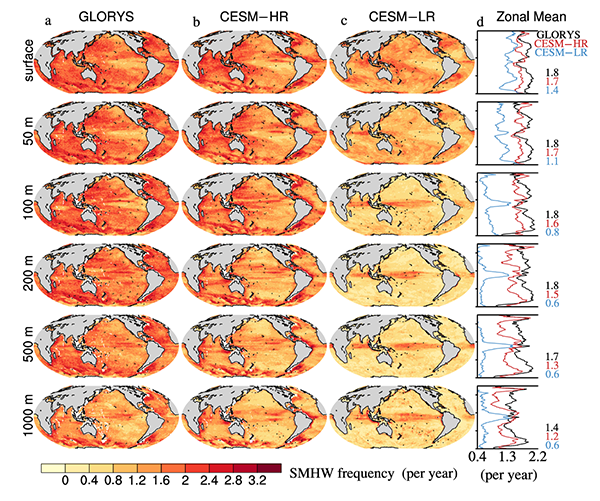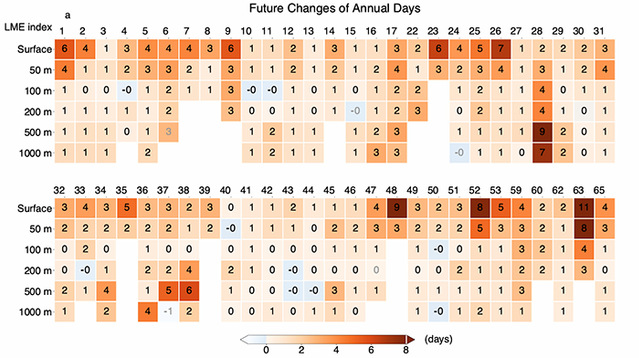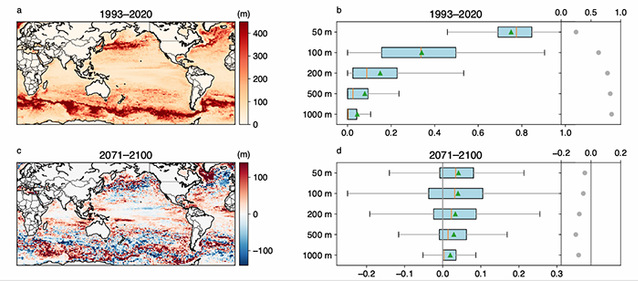Marine heatwaves refer to extreme events characterized by abnormally high sea surface temperatures, which have significant impacts on ecosystems and socio-economic development. Marine organisms often react to extreme ocean temperatures by either migrating horizontally toward the poles or vertically to deeper ocean layers. Recently, the team led by Professor Gao Huiwang and Professor Zhang Shaoqing from Frontiers Science Center for Deep Ocean Multispheres and Earth System proposed a future threshold method based on simulation predictions of future climate change scenarios using a high-resolution Earth system model (with an atmospheric resolution of 25 kilometers and an oceanic resolution of 10 kilometers). This new method takes into account biological adaptability, and analyzes anomalous warming events relative to long-term average changes in future sea temperatures. With this method, the team evaluated the characteristics of future marine subsurface heatwaves in the global ocean and coastal marine ecosystems. Their research findings, titled “Intensification of future subsurface marine heatwaves in an eddy-resolving model”, have been published in Nature Communications, an internationally prestigious journal.
The research indicates that the high-resolution model has significantly enhanced the simulation capability for subsurface marine heatwaves. Previous studies on marine heatwaves suggested that future marine heatwaves might last for decades due to background warming. However, this finding appears inconsistent with the characteristics of extreme weather events. By constructing a future threshold (i.e. removing those anomalous temperature increases driven by the long-term warming trend), the study elucidates the contributions of background warming and sea temperature variability to subsurface marine heatwaves. The results demonstrate that as climate change intensifies, the intensity and annual occurrence of subsurface marine heatwaves will continue to increase, potentially having profound impacts on marine ecosystems and socio-economic development. Furthermore, the research provides a critical scientific basis for policymakers to formulate response measures and strategic plans.











